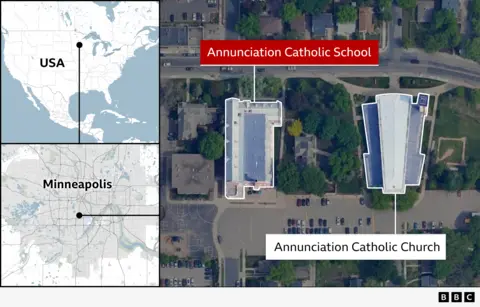Kenyan President William Ruto continues to stir controversy with his announcement to construct a grand church at the presidential office in Nairobi. The plans, reported by a leading local newspaper, suggest that the project will cost approximately $9 million and feature a capacity for 8,000 congregants. Defending his decision, Ruto asserted on Friday, "I am not going to ask anyone for an apology for building a church," implying that dissent may stem from "the devil."
However, this bold proclamation has left many Kenyans feeling dismayed, particularly given the socio-economic struggles that afflict the nation. Critics worry about the implications of the project on Kenya's secular constitution and the appropriation of state resources for a religious edifice. The Daily Nation, which first broke the story, highlighted concerns regarding the appropriateness of such a significant expenditure amid escalating living costs.
While Ruto claimed that he would personally fund the church project, questions remain regarding the ethics of erecting such a large structure on government property. The timing has fueled further discontent, as prominent voices within the political sphere argue that Kenya is not a Christian state and should remain inclusive of all faiths, given its diverse religious landscape—approximately 85% of Kenyans identify as Christian, followed by a sizeable Muslim community and other minority religions.
In defense of his actions, Ruto pointed to the existence of a rudimentary church made of iron sheets already situated on the property, challenging critics by stating it was not befitting for the presidency. Known for his overtly religious persona, Ruto has earned the moniker "deputy Jesus," a title that reflects both his evangelical beliefs and the polarizing reaction they have incited among a segment of the Kenyan public.
As the controversy unfolds, Ruto's plans to foster a more substantial place of worship within official government premises raise ongoing debates about the intersection of faith, governance, and national identity in contemporary Kenya.
However, this bold proclamation has left many Kenyans feeling dismayed, particularly given the socio-economic struggles that afflict the nation. Critics worry about the implications of the project on Kenya's secular constitution and the appropriation of state resources for a religious edifice. The Daily Nation, which first broke the story, highlighted concerns regarding the appropriateness of such a significant expenditure amid escalating living costs.
While Ruto claimed that he would personally fund the church project, questions remain regarding the ethics of erecting such a large structure on government property. The timing has fueled further discontent, as prominent voices within the political sphere argue that Kenya is not a Christian state and should remain inclusive of all faiths, given its diverse religious landscape—approximately 85% of Kenyans identify as Christian, followed by a sizeable Muslim community and other minority religions.
In defense of his actions, Ruto pointed to the existence of a rudimentary church made of iron sheets already situated on the property, challenging critics by stating it was not befitting for the presidency. Known for his overtly religious persona, Ruto has earned the moniker "deputy Jesus," a title that reflects both his evangelical beliefs and the polarizing reaction they have incited among a segment of the Kenyan public.
As the controversy unfolds, Ruto's plans to foster a more substantial place of worship within official government premises raise ongoing debates about the intersection of faith, governance, and national identity in contemporary Kenya.
















